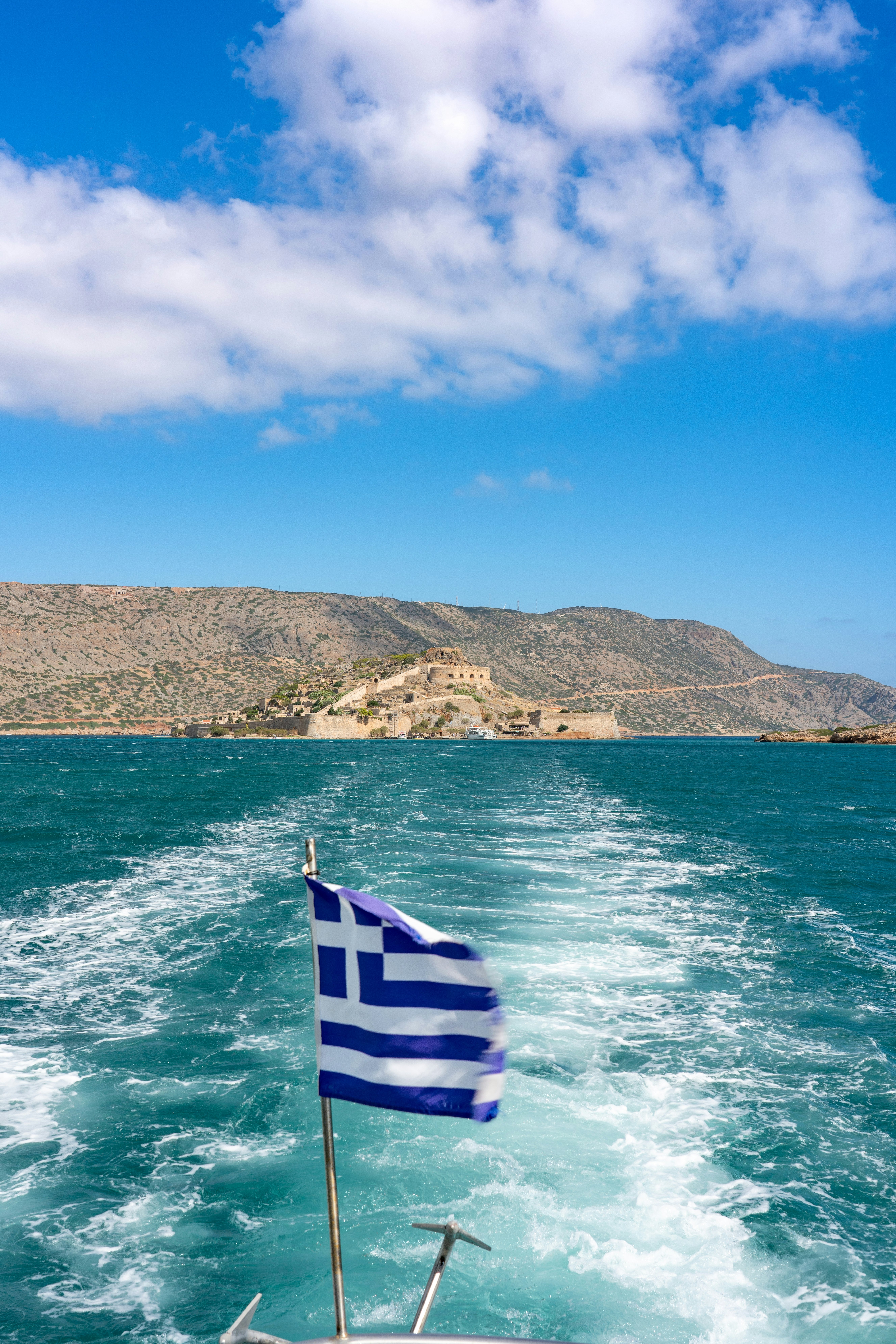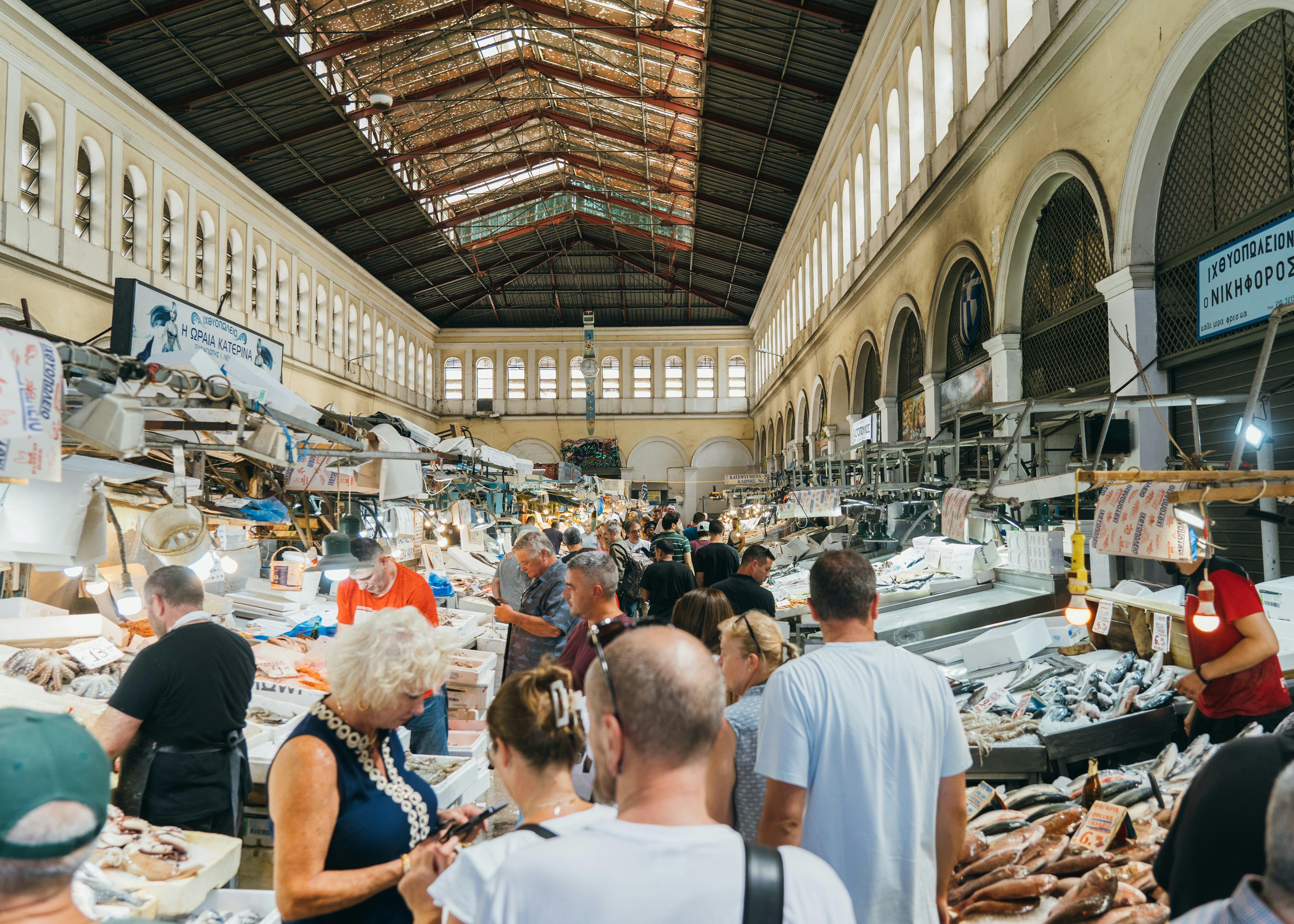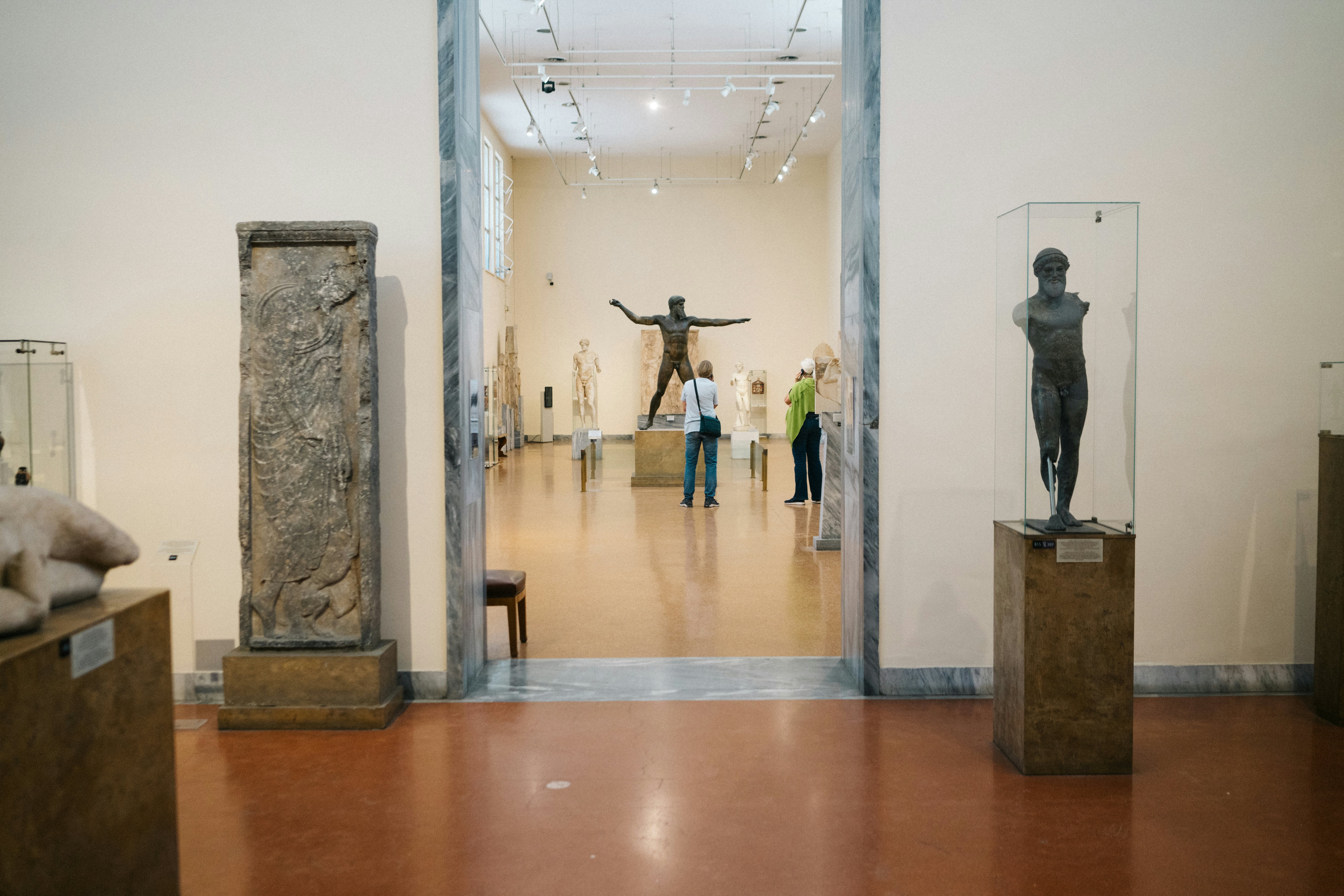

Enjoy your Greek Islands holiday for longer with these tips for traveling on a budget. Marco Argüello for Lonely Planet
Greece is a wonderful country for thrifty travel. Sure, there’s the odd A-lister island magnet, such as Santorini and Mykonos where, given the hefty price tags, you have to wonder if an ouzo glass or a bed come with diamonds. But there are ways of experiencing Greece – including the mainland regions of the Peloponnese, Central and Northern Greece, along with a number of islands – that won’t break your bank. The obvious exception to this is during the summer season, between July and September, when beach regions are swarmed with sun-seeking visitors.
Here are some tips to make your money go further in Greece.
Daily costs
Hostel room: €25-65 (US$29-75)
Family-run hotel per couple: from €95 (US$109)
Public bus ticket: from €1.40 (US$1.60)
One-day metro pass in Athens with unlimited rides: €4.10 (US$4.70)
Beach chair/lounger: €5-12 (US$6-14)
Taverna dinner for two: from €30 (US$34)
Third-wave coffee, like a latte, at museum: €4 (US$4.60)
Greek coffee: from €.90 (US$1)
Moussaka (main): €9-14 (US$10-US$16)
Spanikopita (spinach pie from a bakery): €2 (US$2.30)
Sniff out airline (or other) deals
Look around for airline deals on the likes of Skyskanner – flights tend to be reduced in April and May, September and October and midweek. Visit Greece, the country’s official government website, lists all international and national airports, many of which are located on islands. If you’re flying to an island, determine whether it's more reasonable to go via Athens or direct to your destination. Finally, look into alternative transport modes including train and ferry options (for example, from Italy), as these may also be more economical than flying.

Consider a Eurail pass for ferries
Travelers from outside Europe, the UK and Turkey can buy a regular Eurail pass that includes some international and Greek domestic ferry lines. Europeans can buy an Interrail pass that has the same conditions. If Greece is your only destination, research the benefits of a Eurail Greece Pass or a Eurail Greek Islands Pass that includes a trip allowance (including the Superfast ferry between Italy and Greece) and a 30% discount off certain Greek ferries for additional trips beyond those included. For comparative rates, check ferry websites such as Ferryhopper that sells tickets for all routes.
Match time with place
Greek winter (November to March) is “low” or “off” season, and rates for accommodation and site entrances can halve. While many islands “shut down” for winter, much of mainland Greece, and the larger islands of Crete, Rhodes and Kos operate year-round, thanks to their active permanent population. You’ll not be plagued by crowds and you can enjoy a much more relaxed local lifestyle, albeit in cooler climes. Car hire costs are lower then, too.
Go slow
To get to your destination, hop aboard a regular (read slow, but atmospheric) ferry service and not the fast-speed option where prices are significantly more. On that note, island hopping can be expensive (with tickets, transport to hotel and hotel taxes). Consider settling in one place for a while; this is an economical way to travel. Plus it allows you to delve deep into a location, getting into the local groove and enhancing interactions.

Bed down with good-value sleeps
For the cheapest digs, Athens and Thessaloniki and islands such as Crete, Corfu, Zakynthos and Rhodes have the highest hostel concentration. But also consider staying in older-style, family-run guest houses, many of which throw in breakfast (Hotel Afendoulis in Kos and Hotel Marianna in Nafplio are fine examples). Owners of these spotless options are often more invested in their guests’ enjoyment.
In large cities, steer clear of hotels located in the heart of tourist areas. For example, in Athens, opt for a neighborhood like Pangrati instead of traveler-magnet Plaka. Likewise, in Rhodes, stay in the “new town” as opposed to Old Town Rhodes, however gorgeous this walled section is. The new town is a 15-minute walk from Old Town, meaning you can still enjoy the surroundings of the historic center’s Knights Templar, while spending your sleep (and not dollars) in modern and clean digs.
Take local transport
Greece’s vast KTEL network of buses runs on the mainland and some islands. Examples include Athens to Nafplio (€13.40; US$15.50) and Athens to Delphi (€16.50; US$19).
In big cities, the metro costs significantly less than taxis or ride shares. In Athens and Thessaloniki, a single ride on the metro is around €2.40 (US$2.80) and a 24-hour pass will set you back less than €10 (US$11.50).
Planning tip: In Athens, a 3-day tourist ticket includes one round trip to/from Athens International Airport plus unlimited travel (€20; US$23). You can buy this at the airport or from bus and metro ticket kiosks at Omonia, Syntagma, Thissio, Monastiraki, Acropolis and Piraeus stations.
Follow the locals’ taste buds
Follow the adage and eat like a local and where a local eats. For sit-down meals, head to the neighborhoods or streets that are not in tourist-oriented areas. This may be a mere street or two away from the tourist strip (these are often close to water or main plazas), or it may be in neighborhoods. And, of course, just ask the residents where to go. A good example may be tsipouradika bars, where a shot glass is accompanied by a plate of nibbles (though this may come at another price – a throbbing head!). Some, but not all, tavernas serve a free dessert treat that may be fruit slices, revani (a semolina cake) or kormos (also known as mosaiko), a chocolate and graham cracker slice.

Snack on street food and binge in bakeries
Greece is blessed with some delicious street foods and snacks, including the well-known pita gyro and souvlaki (€3 to €5; $3.50 to $5.80) that you can buy from hole-in-the-wall locales. Greek bakeries are a must for fresh breads and generous pastry - or dough-based treats, especially if breakfast is not included in your hotel price. Some of the most satisfying items – that will set you back a mere €1.50 to €2 (US$1.70 to $2.30) – include tiropita (a cheese pie) and spanakopita (spinach and cheese pie). Also, look out for peinirli (boat-shaped pizzas) and portokalopita (orange syrup cake). Costing between €2 and €4 (US$2.30 and US$4.60), these carb-loaded snacks are perfect fodder for scaling the Acropolis. Regional treats include Thessaloniki’s koulouri, a round ring of bread, (like a thin bagel) that goes for a mere €1 (US$1.20). While here (and in Crete), don’t miss a bougatsa, a filling, custard-stuffed pastry (€2-4; US$2.30-4.60).

Meander in the markets (and supermarkets)
For DIY cooking, produce from local markets is fabulous, as are Greek supermarkets that sell cheap, convenient and filling snacks such as pasteli (sesame and honey bars).
Be wise about water
Bring a high-quality water filter and reusable water bottle. The amount of plastic consumed here is overwhelming; many (but not all) islands do have potable water, but bottles are offered out of habit.

Inquire about combo passes
Some islands have combination museum passes that include a number of sites. An example is the Kalavryta City Pass that also allows access to the Cave of the Lakes and the Odontotos Railway in Kalavryta, in the Peloponnese. Ask about options at any museum as such arrangements come and go.
Travelers over 65 and European Union (EU) students are heavily discounted; this rarely applies to students from other countries.
Factor in freebie days
Free entry days such as the first and third Sunday of the month – see the Ministry of Culture website. (But compared with some other European countries, prices of Greece’s regular museums and sites are reasonable, given their high quality.)
Weigh up a SIM card
Depending on how you need to use your mobile/cell phone, a local pre-paid SIM card with Greece’s major networks (Cosmote, Vodafone, Nova) is usually a lot cheaper than data roaming and international phone plans.
Consult the Oracle
The website Discover Greece has an AI “assistant” named Pythia (yes, after the High Priestess from the Oracle of Delphi) where you can plug in your budget-focused queries and Pythia will provide you with a few helpful, if general, tips to get you started.
Spend (some) bucks
Finally, while it’s great to save a penny here and there, safety and health must come first. Always take out travel insurance – this is something not worth skimping on.
While on that note: filoxenia (hospitality) is ingrained in Greek DNA. Although budget travel might be your objective, please remember that most Greek people are very proud and work extremely hard to ensure visitors enjoy their country and get the most out of their trip; withholding tips (even rounding up, as many Greeks do, shows appreciation), or bargaining anyone out of their livelihood, is not the way to save pennies.
















